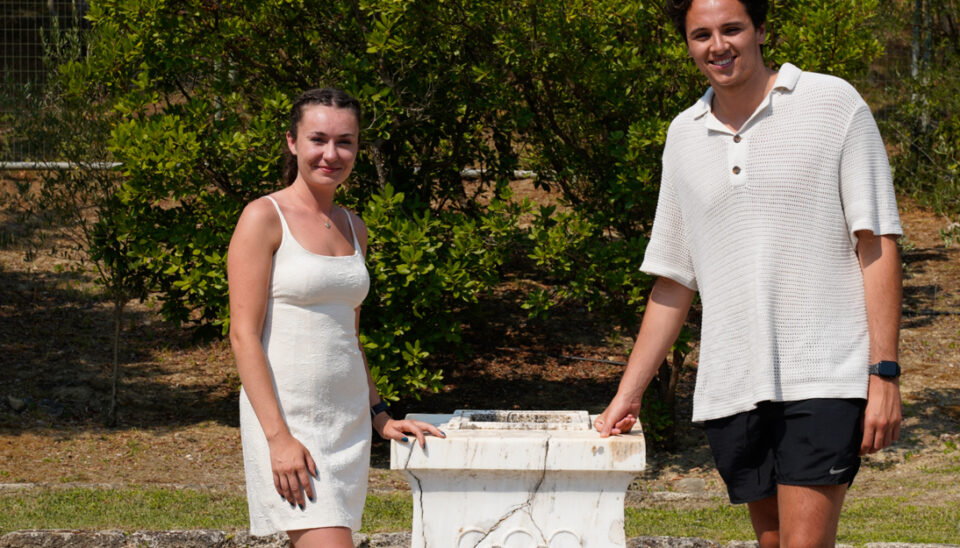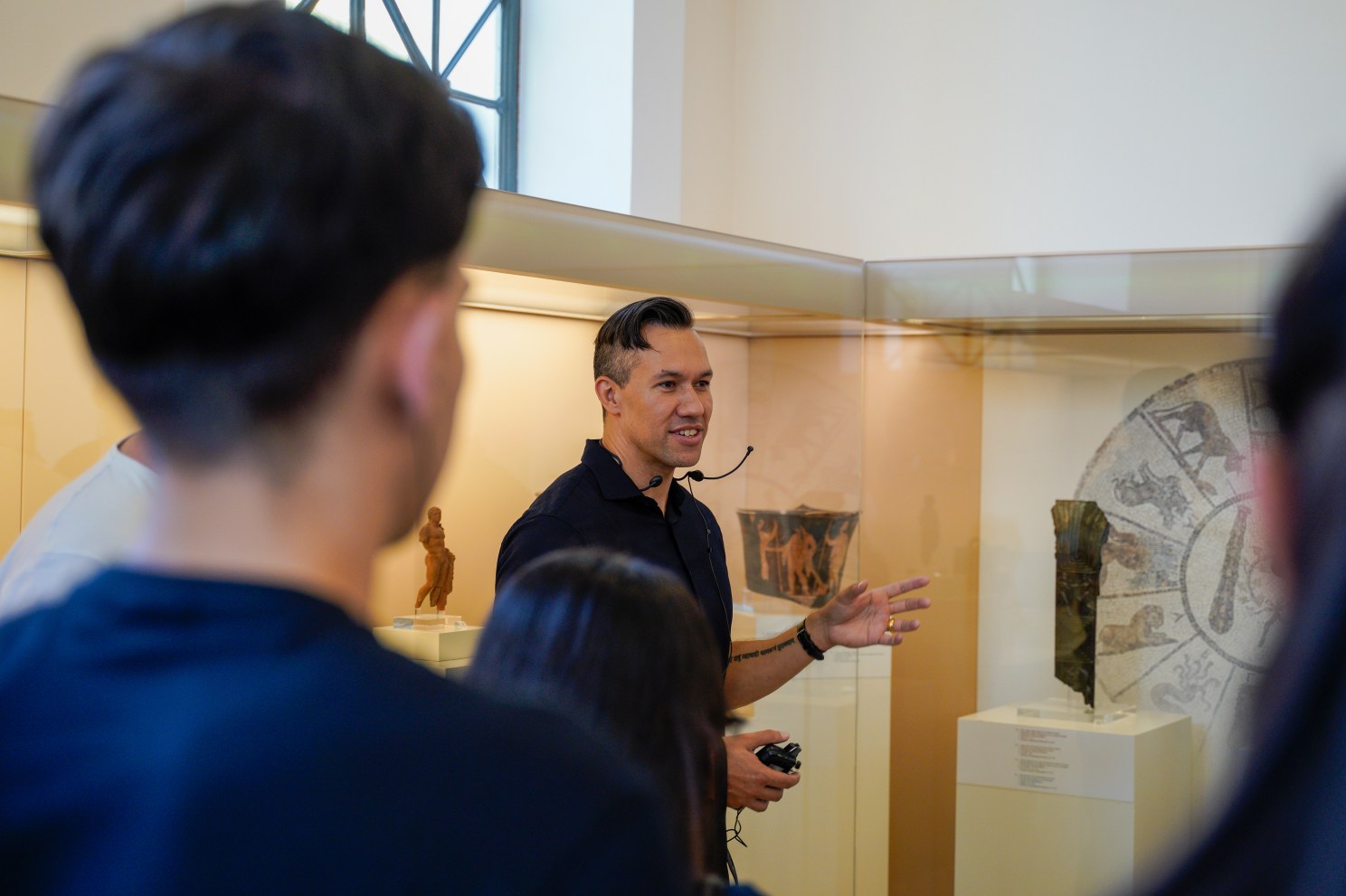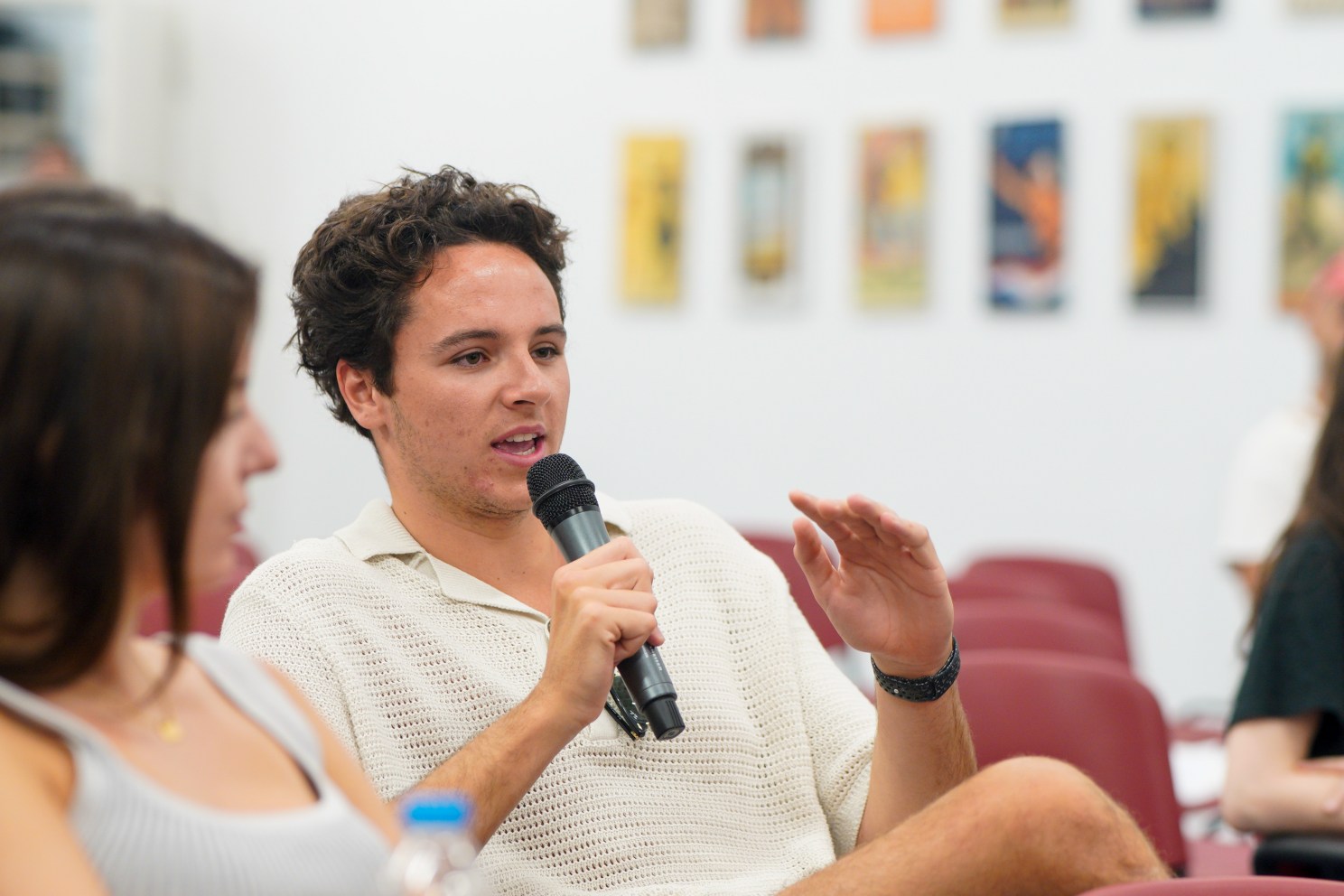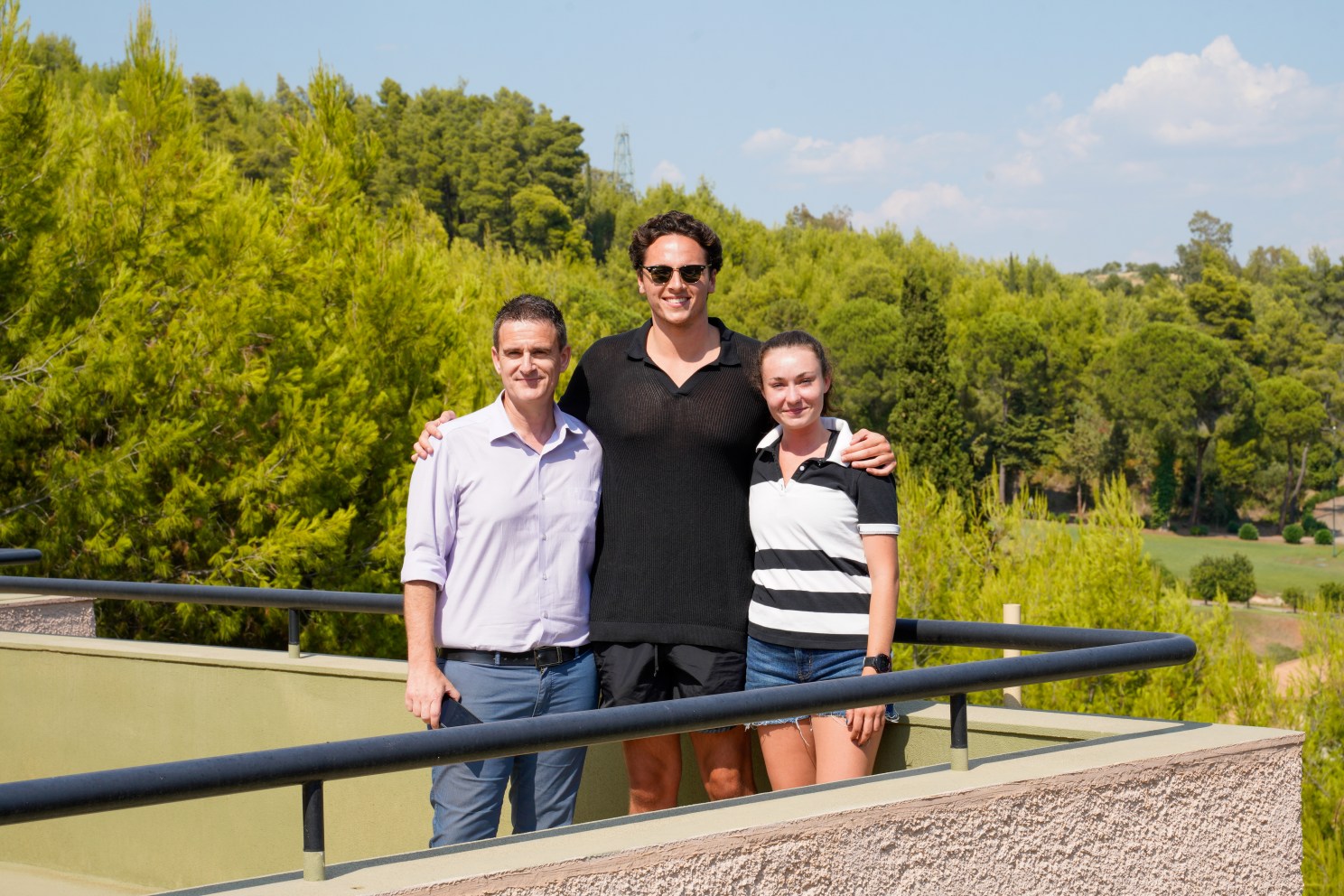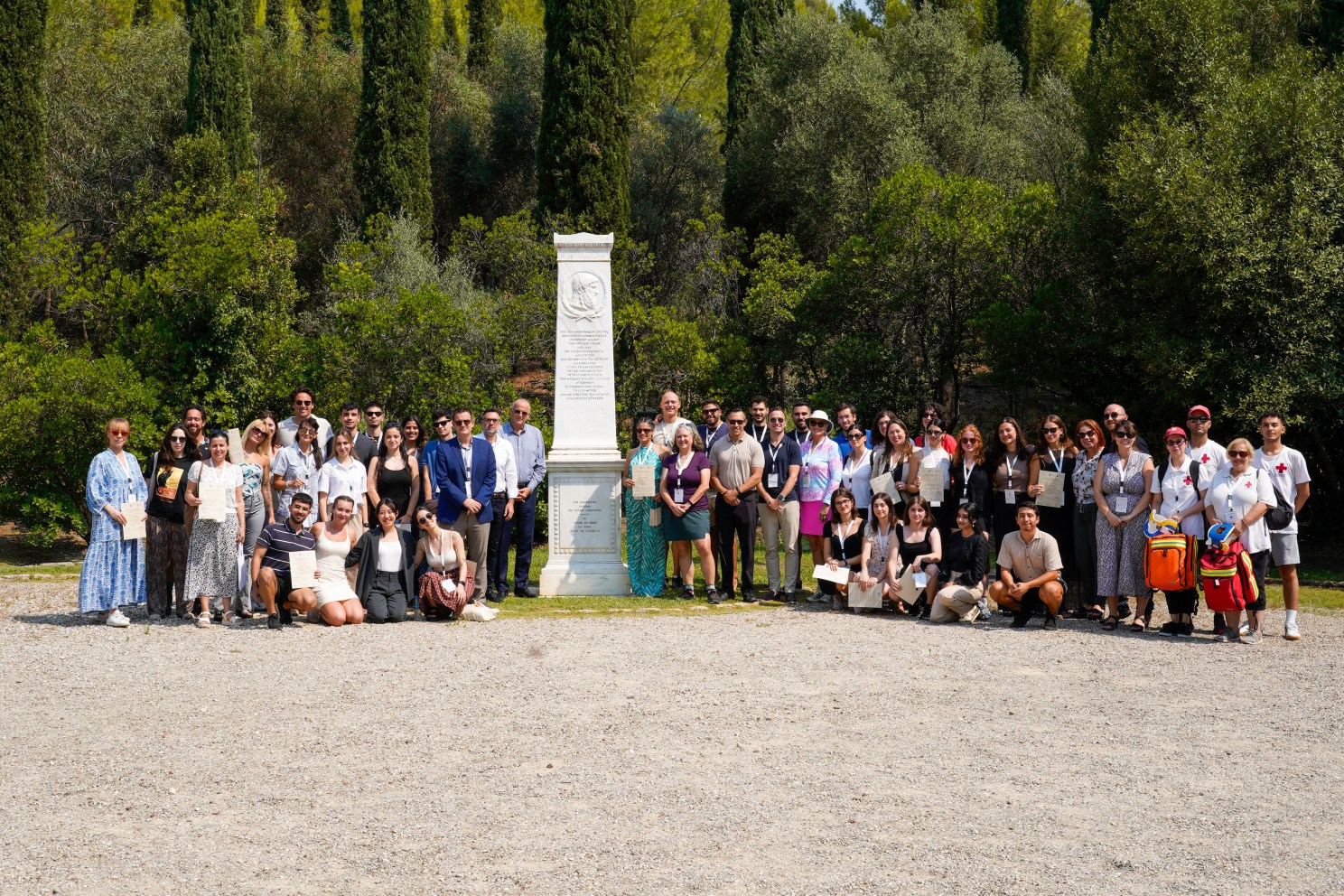In Greece, students find intersection of academics and athletics
Jordyn Duby and James Rozolis-Hill got to try something this summer few College athletes will ever experience — running on the track at the archaeological site at Archaia Olympia in Greece, where the Games first took place more than 2,000 years ago.
“It was honestly surreal,” recalled Rozolis-Hill ’26, an Environmental Science & Public Policy concentrator with a secondary in computer science and a member of the Men’s Water Polo Team. “You’re down on the track looking around and nothing has really changed. It’s still a valley. You’re looking at the same sunsets, the same mountains as the first Olympians.”
The experience came as part of a four-day July intensive co-hosted by the Harvard Center for Hellenic Studies in the U.S. and Greece at the International Olympic Academy on the Peloponnese, where students delved into studying the original Games, its 19th-century revival, and its influence on modern sport.
Thirty-nine Greek and American students took part in the inaugural Sport and Education Program, done in collaboration with the International Olympic Academy, Region of Western Greece, the University of Patras, and the Stark Center for Physical Culture and Sport at the University of Texas at Austin.
“It’s an Olympic year, so it’s a great time to be thinking about the history of the Olympics,” said Mark Schiefsky, C. Lois P. Grove Professor of the Classics and director of the Center for Hellenic Studies. “The modern Olympics was an explicit revival of the ancient games, out of a sense of the educational value of sports, so it’s a good example of the way antiquity is received and shapes our contemporary practices.”
“The modern Olympics was an explicit revival of the ancient games, out of a sense of the educational value of sports, so it’s a good example of the way antiquity is received and shapes our contemporary practices.”
Mark Schiefsky
“There are very few programs — and not much scholarship — that get into the detailed understanding of the reception of the classical tradition and how it really did shape modern sport and university sport as we know it,” said Charles Stocking, UT Austin’s Sport and Education Program academic director.
“The idea is to bring together professionals and professors working in the ancient world of sport and those working in the modern world of sport and thinking about that historical connection, and what we can continue to learn from analyzing that discourse,” explained Stocking, who is also an associate professor in both classics and kinesiology and health education.
Morning seminars on topics such as the ancient Olympics, early education. and the modern relationship between the two were followed by tours of museums or ancient ruins.
Faculty included Angela Schneider, director of the International Centre for Olympic Studies and a silver medalist in rowing at the 1984 Summer Olympics, and Heather Reid, scholar in residence at the Exedra Mediterranean Center, who qualified for the Olympic trials in cycling in the 1980s.
Duby ’25, a member of the Women’s Cross-Country Team and the Women’s Track & Field Team, said it was amazing to connect with people from around the world.
“That’s been the greatest part — meeting all of these Greek students, who have very different experiences from us, but we immediately connected with them,” said Duby, who is studying molecular and cellular biology with a minor in Classics.
Schiefsky noted ancient athletics surfaced many of the same debates we have today. Plato believed organized sports fostered moral excellence as well as physical strength, but other thinkers, like the physician Galen, argued they had no mental or physical benefit.

